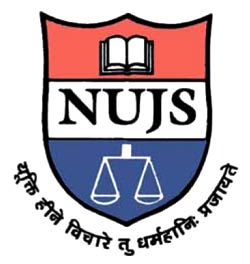- The Indian Society of Criminology is a pioneer organization in the field of crime and criminology in the nation. It was established in the year 1970, with the objective that the study and application of Criminology as a scientific discipline should be implemented on a broad scale in society.
- The 21st century has seen rapid scientific and technological developments, that have applied in almost every sphere of life. In the modern era, crime and criminology are no longer considered to be solitary sectors, but rather, it is recognized that they need to be studied in the context of various other streams. These interdisciplinary areas include Political Science, Sociology, Psychology, Anthropology, Economics, etc. Such an interdisciplinary approach to criminology has, in fact, been one of the most important steps in recent times toward crime prevention.
- Considering the fact that the goal of criminology is not just to have a theoretical understanding of criminal behaviour, but rather, to prevent the instances of crime in society, this is a welcome move indeed. However, considering the fact that science and technology are rapidly developing sectors, with there being new and groundbreaking developments on a yearly basis, the stream of criminology can also not remain stagnant.
- Thus, it is an important discourse to consider how the current scientific and technological advancements will impact the field of criminology, and how the known theories and paradigms will change as a result of that. This is an important development ensuring that modern innovations can be utilized for crime reduction and prevention.
Themes and Sub-Themes
Reimagining Criminology and Criminal Justice in the Context of Changing Paradigm of Science and Technology:
- Development of criminology in the 21st century
- Role of Judiciary in recognising science and technology
- Use of technology in combating organised and white-collar crimes
- Contemporary scientific developments toward crime detection and prevention
- Identifying patterns in the criminal occurrence
- Artificial intelligence and crime prevention
- Cybercrimes and cyber forensics: a new era of technology and risks
- Scientific techniques in combating mob-lynching and organized crime
- Science & technology for women and children: Serving justice to most susceptible victims
- Technological intervention in human trafficking investigation
- New Avenues of DNA technology for the administration of fair Justice
- Humanitarian forensics in disaster victim identification: current trends and challenges
Submission and Formatting Guidelines
- Participants are requested to send their full papers at the time of registration for the Conference.
- The full papers should be between 3,000 – 8,000 words and accompanied by an abstract of not more than 300 words.
- The papers may fall under any of the provided sub-themes for the Conference, or be related to any other topic related to the broad theme of the Conference.
Eligibility
The 43rd All India Criminology Conference is open for academicians, researchers, practitioners, and professionals otherwise engaged in the criminology and criminal justice sectors as well as interested learners and students. It aims to serve as a platform for a healthy discussion and exchange of ideas related to the role of science and technology in contemporary criminal activities.
Registration Fees
- Foreign Delegates – USD 150
- Academicians – INR 3000
- Students/Research Scholars – INR 1500
- Accompany Person (Max. one) – INR 2000
Note: Registration fee includes conference kit, lunch, high tea, and dinner on relevant dates.
Late Fees
- Foreign Delegates – USD 200
- Academicians – INR 3500
- Students/Research Scholars – INR 2000
- Accompany Person (Max. one) – INR 2500
Awards
- The ISC — Kumarappa — Reckless Award was instituted in the year 1973 in order to recognize a person who has made significant contributions to teaching, research or administration (practitioner) in the broad field of Criminology or Criminal Justice Administration.
- The ISC — Dr. B.S. Haikerwal and Professor Sushi! Chandra Award for the Senior Social Scientist was instituted in the year 1989 to be presented to a senior social scientist for his /her contribution to criminology in the broad field of social sciences.
- The ISC — Professor S.S. Srivastava Award for Excellence in Teaching and Research in Criminology was instituted in the year 2005 to identify persons who have significantly contributed to Teaching and Research in Criminology.
- Fellow of the Indian Society of Criminology (FISC) is awarded to the persons who have helped to advance the objects of the society through the channel of the Indian Society of Criminology by participating in its activities and facilitating its growth.
- One Gold medal and one Silver medal (with a cash prize of INR 5000 and INR 3000, respectively) for the best research papers in the field of Criminology, Criminal Justice and allied fields.
Important Dates
- Registration Deadline – September 15, 2022
- Submission Deadline – September 15, 2022
- Deadline with late payment – October 15, 2022
- Dates of the Conference – December 17 to 19, 2022
Venue
West Bengal National University of Juridical Sciences, Kolkata
In case of any queries, please contact Ms Kanchan Yadav at kanchanyadav@nujs.edu
 459
459

